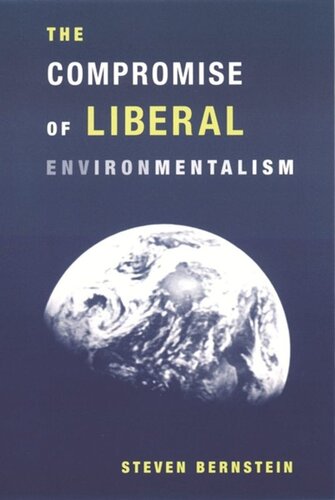

Most ebook files are in PDF format, so you can easily read them using various software such as Foxit Reader or directly on the Google Chrome browser.
Some ebook files are released by publishers in other formats such as .awz, .mobi, .epub, .fb2, etc. You may need to install specific software to read these formats on mobile/PC, such as Calibre.
Please read the tutorial at this link: https://ebookbell.com/faq
We offer FREE conversion to the popular formats you request; however, this may take some time. Therefore, right after payment, please email us, and we will try to provide the service as quickly as possible.
For some exceptional file formats or broken links (if any), please refrain from opening any disputes. Instead, email us first, and we will try to assist within a maximum of 6 hours.
EbookBell Team

4.1
100 reviewsThe most significant shift in environmental governance over the last thirty years has been the convergence of environmental and liberal economic norms toward "liberal environmentalism"—which predicates environmental protection on the promotion and maintenance of a liberal economic order. Bernstein assesses the reasons for this historical shift, introduces a socio-evolutionary explanation for the selection of international norms, and considers the implications for our ability to address global environmental problems.
The most significant shift in environmental governance over the last thirty years has been the convergence of environmental and liberal economic norms toward "liberal environmentalism"—which predicates environmental protection on the promotion and maintenance of a liberal economic order. Steven Bernstein assesses the reasons for this historical shift, introduces a socio-evolutionary explanation for the selection of international norms, and considers the implications for our ability to address global environmental problems.
The author maintains that the institutionalization of "sustainable development" at the 1992 United Nations Conference on Environment and Development (UNCED) legitimized the evolution toward liberal environmentalism. Arguing that most of the literature on international environmental politics is too rationalist and problem-specific, Bernstein challenges the mainstream thinking on international cooperation by showing that it is always for some purpose or goal. His analysis of the norms that guide global environmental policy also challenges the often-presumed primacy of science in environmental governance.